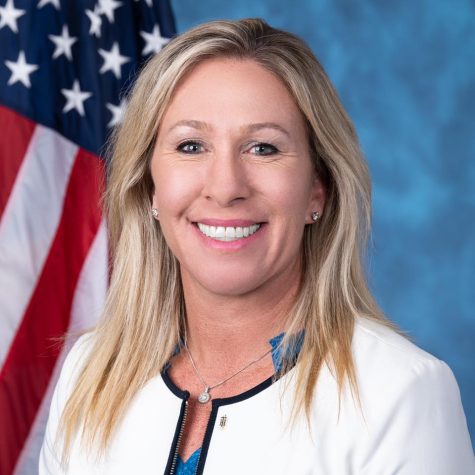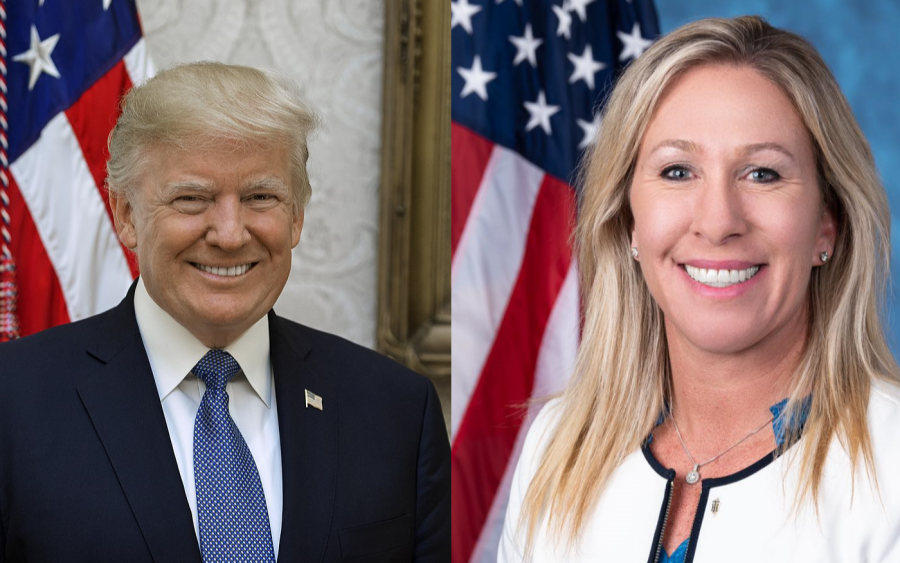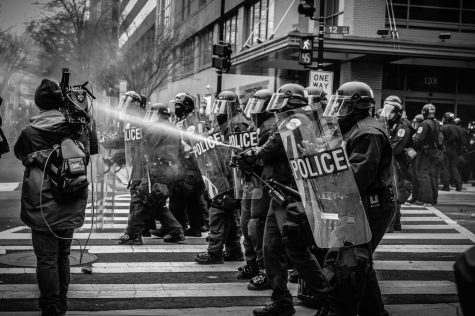The MAGA Party
It is very rare for one man to dominate a political party, much less after leaving office. But recent reporting has shown Donald Trump, despite losing his re-election bid, has done just that. And going into the midterms, that level of influence can either make or break the party that once prided itself as a beacon of responsibility. With more Trumpist figures entering the Republican party, the GOP is unlikely to deradicalize anytime soon.

The impacts of this increasing fealty to Trump are many and overwhelming. Whether it was facing two impeachments or the firing of former FBI Director James Comey, Republicans have done their best to defend their leader’s reputation. The many scandals of Donald Trump and the four years of defensiveness around those scandals can sometimes obfuscate the significance of what is happening within a major American political party.
However, after leaving the White House, Trump’s allies have maintained a foothold and have excited their inflammatory rhetoric. The arrival of figures like Marjorie Taylor Greene, Lauren Boebert, and Madison Cawthorn to the House of Representatives adds to an increasingly hostile and explicitly partisan party built not on a principled platform but the anti-Democrat fervor.

Rep. Greene, a first-time Congresswoman from Georgia’s 14th district, is perhaps one of the most infamous people within the Republican Caucus. From the beginning, Greene displayed a dark side, as her work with the Family America Project was marred by her moderation of their Facebook group, which was known for making threats against Democrats, including the Obamas. Not to mention her tendency to create conspiracies on her own time. The most infamous among them was her claim that solar generators run by the Rothschilds were responsible for fires in California. This, in turn, led to the phrase “Jewish Space Lasers” trending on Twitter. The phrase became a source of intense mockery of the first-term Congresswoman. Her attempts to connect the fires to the Rothschilds were quite a symbol, as the Rothschilds are the target of many anti-Semitic conspiracy theories. Greene would later make an apology on the House floor, though its authenticity is up for debate.
This rhetoric was not unique to Greene. Rep. Lauren Boebert made an impassioned and inflammatory defense of Rep. Paul Gosar after he tweeted an animated video of himself killing President Biden and Rep. Ocasio-Cortez. In that defense, Boebert dredged up as many attacks on her Democratic colleagues as she could, referring to Rep. Ilhan Omar as a member of the “Jihad Squad.” She, too, was forced to apologize after a leaked video showed her making additional anti-Muslim comments about Rep. Omar.
While it may be tempting to see these statements as inherently disqualifying, the truth is quite different. The attacks are part of a larger philosophy within the Republican Party. It harks back to a very simple but dangerous philosophy that the Trump campaigns of 2016 and 2020 played into, that being a strategy of unending vitriol. In an interview with Dr. Matthew Geras, an assistant professor of political science at UIS, Geras noted that this rhetoric spreads “…because Trump is still very popular among Republican voters.” This popularity also comes with a broader disdain for last year’s election results. Indeed, as Dr. Geras notes, “an increasing number of Republicans…support the claim that the 2020 election was stolen and are less trusting of our elections.” With that disdain comes a sort of internal purging. If traditional Republicans are to survive, they increasingly have to live in tandem with a Trumpist paradigm. One that requires continued loyalty to a set of myths uses the Democratic party as the enigmatic villain.
This phenomenon is not solely present as a matter of unfriendly rhetoric. It transfers over into policymaking as well. After President Biden’s infrastructure bill passed through the Senate with the help of 13 Republicans, former president Trump denounced the deal, and Rep. Greene denounced the three Republicans who voted for it, posting their names and numbers on Twitter. The result was a cacophony of threats from angry Trump voters who saw the bipartisan deal as an attack on American values and what Rep. Greene called “communism.” While traditional Republicans such as Rep. John Katko of New York have objected to the attacks, pointing out that notable figures like Reagan worked with Democrats as well, the objections have fallen on deaf ears.
More than a mere expression of abuse, the shift in attitude among the former Party of Lincoln has morphed into a long-term pressure campaign to enforce conformity, and with an increasingly energized base, the pro-Trump forces seem likely to achieve their goal. They have the money and the power to push others out. Greene is one of the most well-funded Republicans in the party today. Between 2019 and 2020, she raised over $3 million, per the Federal Election Commission. She has also pledged $175,000 to the RNC, giving the controversial Congresswoman even more influence within the party. While some such as Rep. Liz Cheney have tried to oppose this shift, anti-Trump Republicans are losing ground fast. Representatives Adam Kinzinger of Illinois and Anthony Gonzalez of Ohio have announced they will not seek reelection. Rep. Liz Cheney has lost the recognition of her party in Wyoming, making her a Republican without a home. Indeed, the power of the Trump caucus has successfully isolated much of the anti-Trump movement within the GOP.
With the midterms coming up next year, and the Republicans expected to take back control of the Senate and possibly the House, this caucus is in a position to remodel the entire political system for years to come. Unless the Biden administration and the Democrats can shift the message soon, Americans can safely expect a lot more conflict and hatred in the future.















